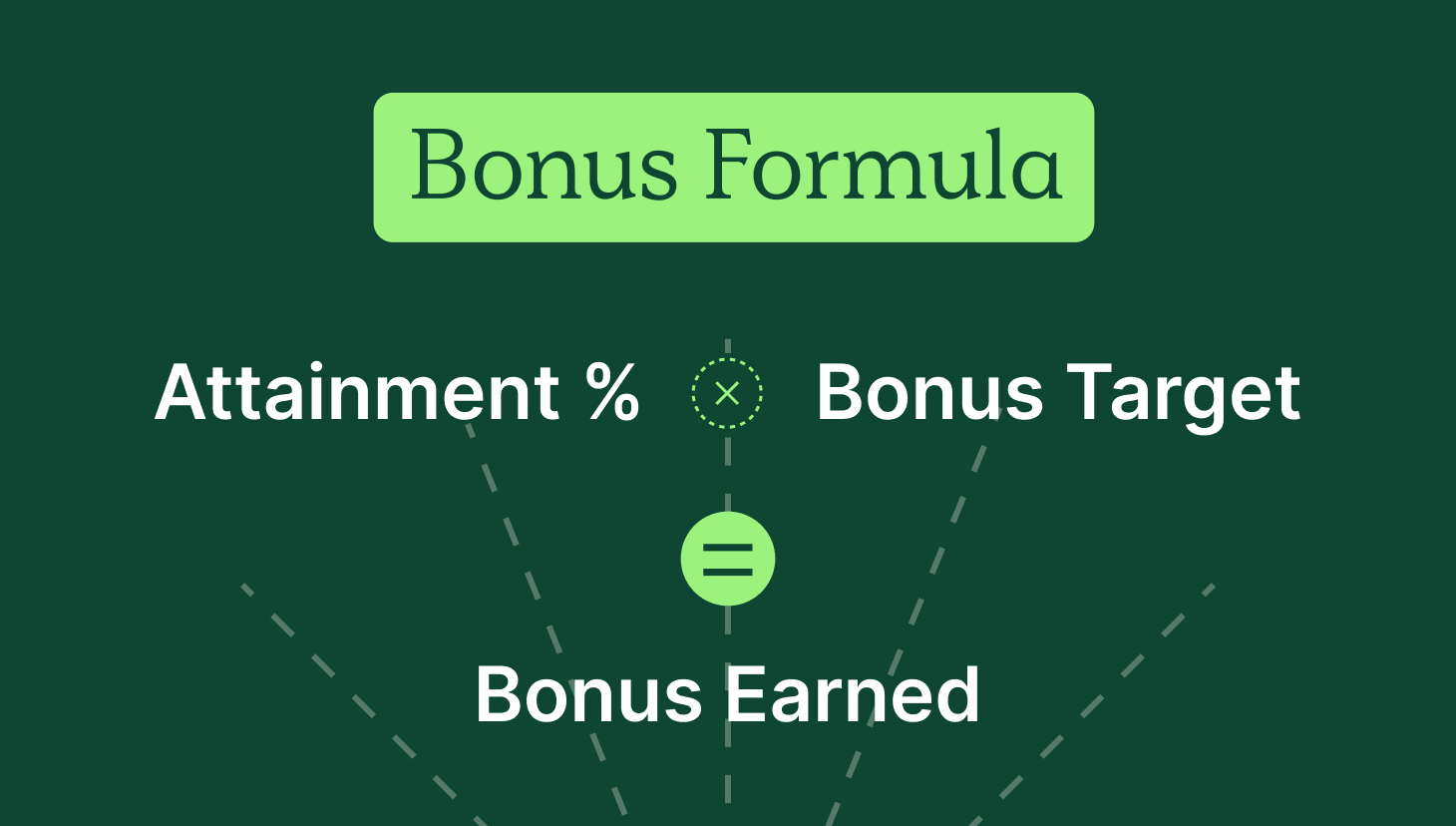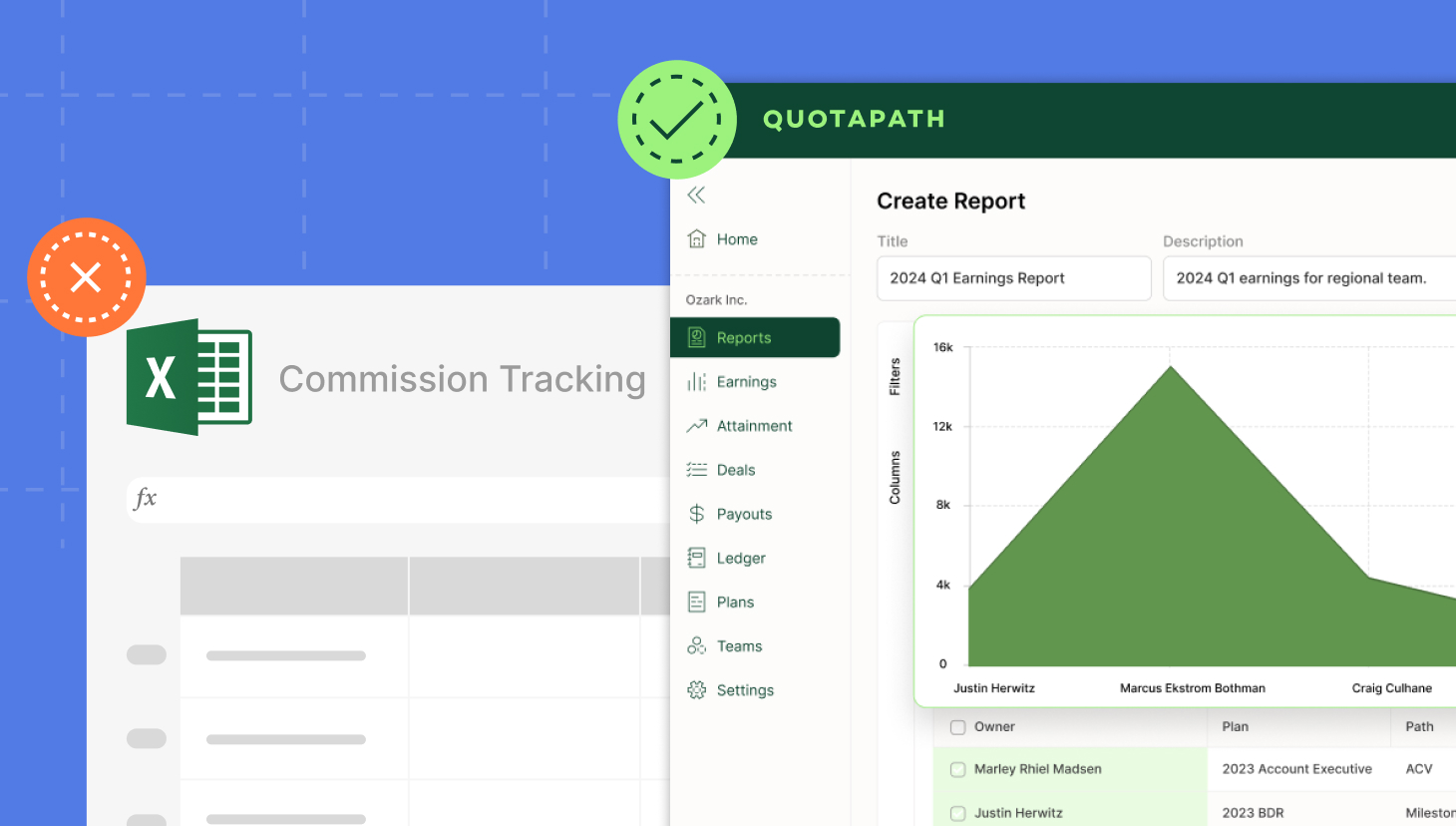One of the first things you learn in business is that when you’re ready to close, you always approach the decision makers. Any other tactic is a waste of time. This is particularly true in sales. After all, pitching to someone who doesn’t have any power is as inefficient as it is ineffective. But how do you know who’s capable of giving you a “yes” that actually holds water?
The truth is that there is rarely just one decision maker at a company. Perhaps more importantly, there’s more than one type of decision maker. Understanding what motivates people in power will help you tailor your approach to your audience. Once that’s done, you’ll know how to save time and speed up the process. Even better, you may finally have the edge you need to send your close rates soaring.
Try the most collaborative solution to manage, track and payout variable compensation. Calculate commissions and pay your team accurately, and on time.
Start TrialThe Champion
Of all the types of decision makers you’ll eventually encounter, The Champion is one of the most enjoyable. That’s because they’re the person who wants to buy a solution every bit as much as you want to sell them one. The Champion is interested in problem-solving. They might be the actual decision maker. Or they could be the person taking the demo and relaying all the important bits to the decision maker later on.
What to look for:
The Champion will go out of their way to help facilitate a deal. They may encourage you to set up additional calls with them or other key players. They’ll likely email you questions about your product or sales process. They’ll also respond to your emails quickly rather than letting time pass to appear “hard to get.” They’re a stakeholder, either literally or because they know that closing a deal will make them look good to their peers and/or bosses. Be on the lookout for someone who’s engaged from the beginning and you’ll likely find The Champion.
The Final Decision Makers
Much as the title suggests, The Final Decision Maker is the person — or people! — who have the authority to sign on the dotted line. They may still have to run your proposal by a business partner or even a board of directors. But still, The Final Decision Maker is the all-powerful entity who can help you hit your sales goal or send you packing. This is not an employee, an assistant, or Bobby from the mailroom. When you meet with The Final Decision Maker, it’s clearly their yay or nay that makes all the difference.
What to look for:
It can be a bit tricky figuring out who The Final Decision Maker truly is. Some organizations use decoys along the way, sending in managers lower on the company ladder to do the majority of the leg work. Sometimes, you can cut to the chase by finding out who has wielded the buying power before. For that, ask around your own sales team (assuming you and the prospect’s company have a history). You may also want to see if anyone from another company in your sales territory has any insight. The Final Decision Maker might also give themselves away by knowing the answers to your process and timeline questions. After all, they’ve been there, done that.
The Signer
The Signer may also be called The Surpriser. Officially, they’re the person responsible for signing off on your contract. But they’re also the person who could come in at the last minute and completely torpedo your deal.
What to look for:
Ideally, you’ll only meet The Signer once everyone is happy with the terms. This should be that moment when everybody in the room is ready to pop a few bottles of bubbly in celebration. You may hear his or her name early on or spot it in the paperwork. They may be CC’d on emails or included in conference calls as a courtesy. Often, they’re kept in the loop so that they’re up to date on important developments. But they likely won’t ask questions or otherwise insert themselves into the conversation unless forced to. Their job is to sign the contract. The rest is just details, and those details should be worked out long before The Signer makes an appearance.
The Legal Decision Maker
In most deals (and especially the big ones), there’s a person in charge of the legal review of your contract. This is The Legal Decision Maker. Their job is to ensure that all items in the contract adhere to the letter of the law, but that’s just the beginning. They may ask questions to clarify certain clauses and ask for language to be adjusted to eliminate ambiguity or mitigate risk. A skilled attorney will also look for boilerplate language that covers potential conflict. This is vital so that all parties know how disagreements will be handled should any arise.
What to look for:
You can spot The Legal Decision Maker by the tell-tale JD that appears after their name. Or you may see a title like General Counsel indicating their status as a top-notch legal eagle.
Design, track, and manage variable incentives with QuotaPath. Give your RevOps, finance, and sales teams transparency into sales compensation.
Talk to SalesThe Fake Decision Maker
When you’re trying to make a deal, the worst-case scenario is not getting a “no.” It’s getting a “yes” from someone who doesn’t actually have the authority to give it to you. The Fake Decision Maker is a person who claims they can make a decision but can’t. There are several reasons this happens. They may be too wrapped up in their own ego to realize they need permission from higher-ups. They might think they’re in charge of a project and then have their authority stripped away because of someone else’s ego. Or they could just be a liar (harsh, but it does happen).
These fraudsters can ruin a deal and wreck your day. It’s crucial you avoid getting too far into the sales process before realizing you’re dealing with a Fake Decision Maker. Otherwise, you could have to abandon your progress and start from the beginning. That’s after you figure out who you should really be talking to, of course. In some cases, running headfirst into a Fake Decision Maker could derail the deal entirely. To prevent that, get to know what Fake Decision Makers look like. Once you’ve got that down pat, figure out how you can get around them to schedule a meeting with the actual powers that be.
What to look for:
Fake Decision Makers are typically people who lack power, which means they haven’t finished a deal as a decision maker before. They may seem unfamiliar with the buying process and stumble over their words because of that uncertainty. In an effort to cover their tracks, they may be reluctant to let you talk to anyone else in the company. Just remember: If something feels off, something probably is off. Don’t be afraid to retrace your steps, do some company research and make a few phone calls to see who is really in charge. If you’re discrete, you won’t ruffle feathers, and a quiet investigation could save you a lot of time and resources.
Some deals may be as simple as you and a solo decision maker sitting down for a chat. Other deals might involve several stages and more than one type of decision maker. Learning how to pick out a Champion in a crowd can make it easier to close a deal quickly. Learning how to spot a Fake Decision Maker before you spend weeks catering to their ego can save you a ton of heartbreak. In other words, this is a skill worth honing.
For more sales tips, check out some of our favorite sales podcasts of 2020.



